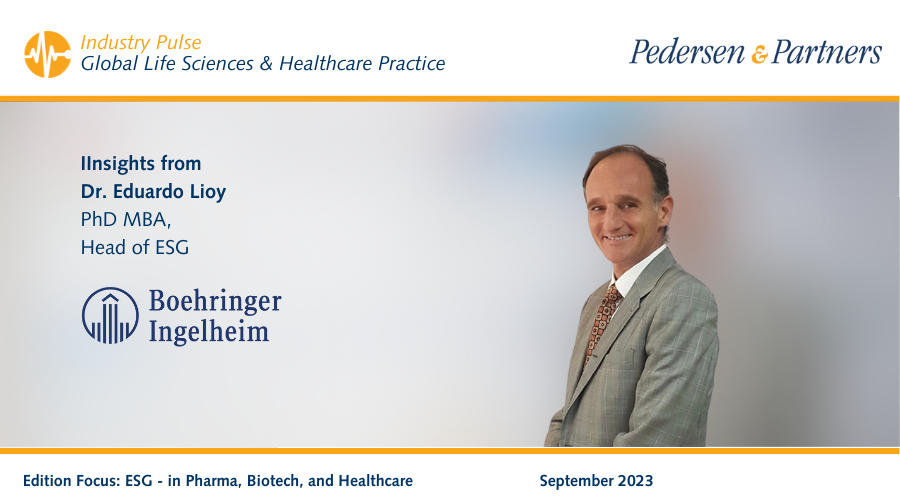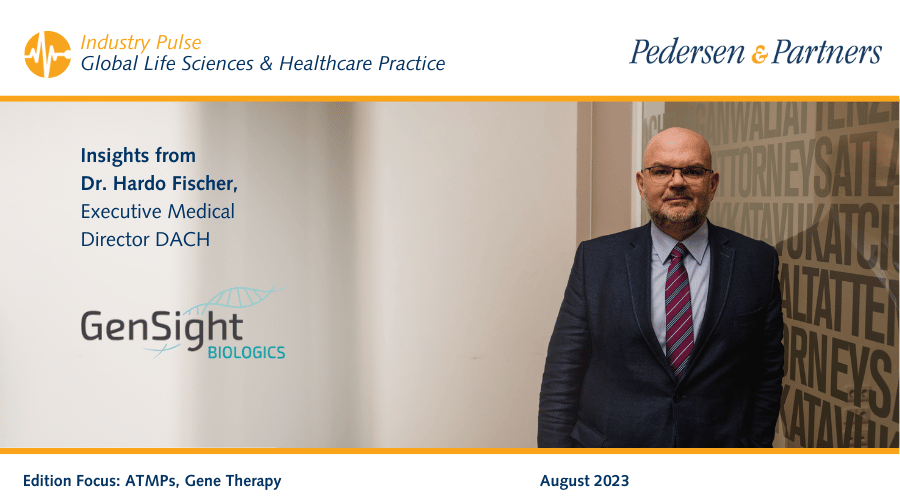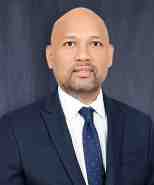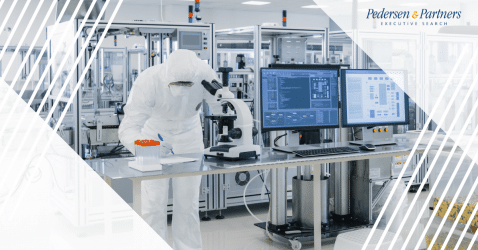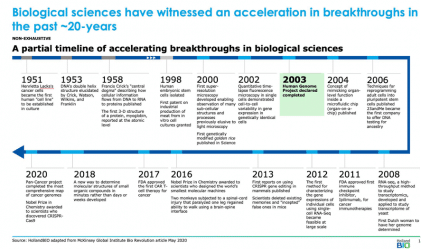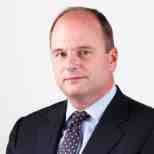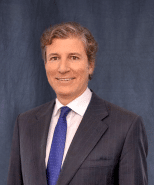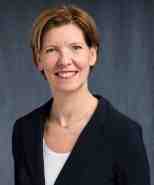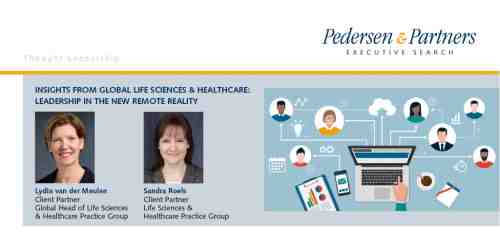Earlier this year, the COVID-19 pandemic immediately drew the world’s attention to the fact that major issues can arise due to supply chain disruptions. It has become clear that individuals and organisations are far too dependent on extended global supply chain networks. The failure of supply chains in the life science and healthcare sector during a global pandemic can be a literal matter of life and death.
In preparing this article, we sought insights from Pedersen & Partners colleagues who focus on Supply Chain and Life Sciences & Healthcare, based in diverse locations across the world: UK, Switzerland, UAE (Dubai), and India.
COUNTRY FOCUS: Switzerland
Our colleague Thomas Heeger, based in Zurich, shares the following insights from Switzerland:
In Switzerland, all shortages of pharmaceutical drugs are registered in a central database. A quick check of the drugshortage.ch database will show that hundreds of drugs (including many generics) are permanently unavailable, and need to be replaced by others with the same active ingredients. Heeger adds that drug shortages were a problem in Switzerland and many other European countries even before the pandemic.
During the height of the outbreak, most pharmacies and wholesalers were completely cleaned out of the drug Plaquenil (hydroxychloroquine), and the supply was eventually coordinated by the state through the Swiss army. In addition, several drugs could not be sold via pharmacies as usual; instead, GPs had to send their prescriptions to the hospital, where the hospital pharmacist approved the prescriptions, filled them, and mailed or delivered the drugs to the patients. Likewise, the Swiss army was responsible for securing hospital supplies of equipment such as masks, gloves, surgical instruments, ventilators, anaesthetics such as propofol, and disinfectants.
Swiss textile companies have retooled their machines in order to produce masks, part of a trend that we have seen in textile companies across Europe. In Romania, Pedersen & Partners have been instrumental in helping to find and recruit a CEO for such a textile business, which has quickly responded to changing market needs with a new medical venture, and is able to serve the EU from within the borders of the single market.
In all European countries, there has been a push to obtain as many of the critical products as possible, using all available supply channels. This includes grey channels such as direct deliveries from Chinese dealers (sometimes at highly inflated prices), and can cause issues in the manufacturing countries. For example, Russian ventilator manufacturers have sold ventilators in Western Europe, despite domestic shortages causing disastrous situations in Russian hospitals.
Today, pharma companies and contract manufacturers are preparing for the production of coronavirus vaccines, without knowing exactly what they will be producing. Lonza/Basel Switzerland has received USD 200 million from Moderna to construct two manufacturing lines. Moderna’s drug is currently in Phase III of development, and Lonza/Basel’s share price has increased from 350 USD in January 2020 to over 500 USD in August 2020.
COUNTRY FOCUS: India
Our colleague Rakesh Sharma, based in the New Delhi region, shares the following insights about the market in India:
In India, the Life Sciences & Pharmaceutical industry has been deemed an essential industry under the current circumstances. The Indian government exempted employees and contractors in pharma and medical manufacturing and operations from lockdown, and manufacturing facilities remained operational, albeit at only 50% manpower availability.
Special attention was given to a number of key issues, including challenges for imports due to low shipping availability, lack of storage space at airports and inadequate staffing.
Indian companies scaled up operations to meet the increase in demand for chloroquine phosphate, which has antiviral effects and has been highlighted by the World Health Organisation as a research option to treat COVID-19. In addition, companies are ramping up production of vials (specifically, Type 1 Moulded Vials) in anticipation of the demand when a coronavirus vaccine is ready.
Since the beginning of the pandemic, the shortage of active pharmaceutical ingredients (APIs) and packing material from China has caused immediate disruption and led to drug shortages. India imports 70% of its APIs from China, so as the virus has spread, the pharmaceutical industry in India has inevitably faced higher material costs, as well as shortages that affect its export of generic medicines. The disruption has also affected clinical research into investigational drugs; such research relies on the availability of similar manufacturing plants. Clinical trials and long-term studies of drugs used for conditions such as Type 2 diabetes have been paused temporarily; there will be a concerted effort to create alternate supply sources, but this will take time to stabilise.
With regard to the domestic supply of drugs in India, there has been a gradual shift to online delivery as e-tailers start to provide last-mile solutions. However, they are new to the business of supplying medicines, and thus unfamiliar with pharmaceutical delivery SOPs.
Going forward, there is much that we can learn from this situation about the ways in which supply chain networks can be structured and managed in the future. One positive development for life science and healthcare supply chain leaders is that the crisis has highlighted the importance of supply chain oversight at all levels of an organisation: strategically from the perspective of the boardroom, and operationally from start to end – the sourcing of raw materials and manufacturing, right through to the last mile. As businesses start to adapt to what many of us are calling the New Normal, supply chain leaders will increasingly find themselves having to strike a balance between the long-term strategic visions of a business and the need for increased regularity of planning and forecasting, providing an ability to flex and pivot to meet changing market demands caused by unexpected events or disruptions.
Our Supply Chain experts, Brian Cartwright and Marc Kramers, have provided some insights into recent developments that will benefit Life Science & Healthcare Supply Chain leadership and networks:
Supply Chain leaders in the boardroom
In order for supply chain leaders to operate effectively at board level, it is important to give them wider exposure across the business so they can learn to speak the language of the boardroom as well as the language of the supply chain. The new skills and capabilities that supply chain leaders gain by having a wider understanding of the entire business will give them an understanding of shareholder value and expectations, which will ensure a smoother transition when they move to the role of Chief Supply Chain Offer (CSCO). The CSCO will play an increasingly crucial role in all manufacturing companies, adding real value to both bottom line and top line growth. Together with the CFO, the CSCO will become one of the key players in the boardroom and a crucial hire!
Real-time supply chain visibility, and a shift to manufacturing
The pandemic has helped to accelerate the digital agenda faster than ever before. The increased use of technology such as blockchain is helping to stop poor-quality and counterfeit medical equipment and medicines entering the supply chain. The way products are sold and distributed is changing, with manufacturers and retailers increasingly using omni-channel go-to-market strategies. Supply chain software platforms are constantly being developed and improved, with added efficiencies coming from the use of artificial intelligence and automation.
Advanced technology plays a major role in decision-making, and more and more start-ups are providing enterprise solutions to better predict demand, optimise production and provide more customised products on demand. Adapting to the new paradigm really is a case of damned if you do, damned if you don’t; companies must be prepared to make mistakes as they learn what works for their particular use cases. The Fourth Industrial Revolution will revolutionise the relationship between manufacturers and end-users through IoT (Internet of Things), but more importantly IoS (Internet of Services) – this is the real value creator.
As sourcing and production move closer to end-users, most companies are now considering building new manufacturing facilities. Global supply chains were predominantly built to lower the cost base and reduce warehousing capacity, using the just-in-time delivery model. The weaknesses of just-in-time have been highlighted by the supply chain issues of the pandemic.
A global reset, not a new normal
The global Pharmaceutical & Life Sciences companies will overcome this pandemic with relative ease, due to their larger cash balances and diverse product portfolio. What is really hurting them right now is their lack of agility, and inability to bring enough of their high-value products to the end- users quickly enough. The supply chains are still too silo-focused, and it takes too much time to get from product innovation to final delivery. Moreover, the bigger brands do not appeal to the younger generation, as plenty of startups bring trendier brands to the market more quickly, and with a superior social media presence. These startups continue to eat away at the revenue stream of the large consulting firms, with more use cases and better-executed solutions.
Going back to the new normal is not the way forward; the old normal was broken in many of our global economies. In order to stay competitive, we need to press the reset button in order to compete independently and be less reliant on, for example, China and the USA.
It is now widely accepted we have entered the Fourth Industrial Revolution, and pretty much everyone gives it the German name: Industry 4.0. As with the previous industrial revolutions, Industry 4.0 is mainly centred around manufacturing, at least in the early stages of transformation. Are SMEs and large corporations adapting fast enough in digitising their supply chains? According to a CPG benchmark Factory of the Future report conducted by SmarterChains and sponsored by EY, under 10% of the factories assessed are at a stage of maturity in their incorporation of advanced technologies. This is a shocking figure, as some of these companies have vast cash reserves to invest. The obvious question is, why are we so slow to adapt?
Transformation starts with an inquisitive mindset. The curious mind leads to a desire to take risks, for instance by collaborating with startups on a user case basis – and if it works, helping them to scale across the enterprise. This can be contrasted with the current status quo, where large consultancy firms create a report (which is often the best-kept secret within the company) of which technologies to use. This system may not be the best solution; no two manufacturing plants are the same, and therefore a one-size-fits all solution does not scale and is not sustainable.
So what is the next step, if we want to be less reliable on global supply chains, from a cost point of view? Shorter supply chains are an obvious solution, but they inevitably bring higher costs with them. Ultimately, we as consumers will pay the price. If we bring manufacturing closer to the end-user, there will be a lack of capacity, and therefore new factories will have to be built (good news for lower-salary countries), together with new and expanded warehouses and distribution centres. It remains to be seen whether we forget the lessons learned from the current pandemic, and keep pushing forward with the ‘old’ model, which is typically risk-averse and keeps people safe in their jobs for a little while longer. It is our opinion that the more adventurous and agile companies will take a hard look at their leadership teams, and assess whether they are capable enough to bring their organisation through this crisis – and more importantly, how competitive they will be at the other end.



